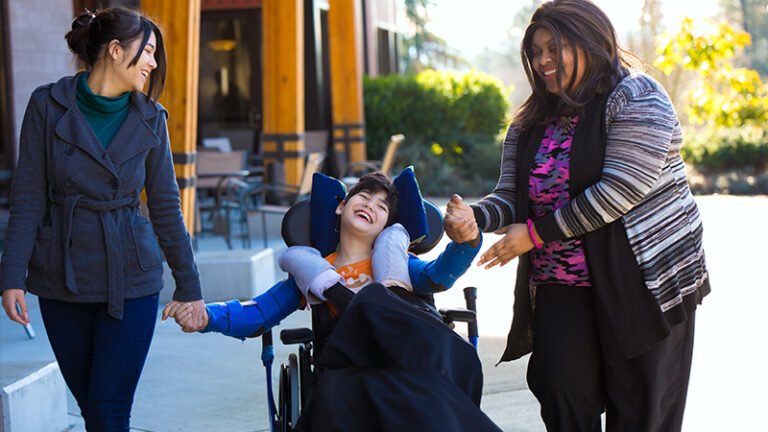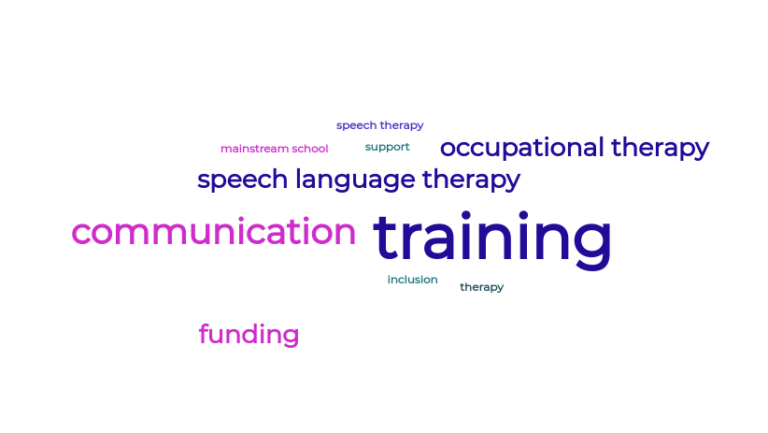
What We Learned:Accessing the FUEL Holiday Activities
At the recent consortium, the team who are designing the FUEL Programme came to answer questions. FUEL Holiday Activities are designed to provide fun activities and a meal for those receiving benefit-related school meals during term time. They also have a small number of spaces available for young people who are not receiving benefit related free… Continue reading What We Learned:Accessing the FUEL Holiday Activities

Snapshot Survey: Secondary Transition
Secondary School Experience for SEND Families In the first half of Autumn half term, we received concerns from parent carers in Kingston that their Secondary-School-age children were receiving detentions from school for fidgeting, forgetfulness and uniform violations. This was despite the children having a diagnosis of Autism and/or ADHD. In particular, this information was a… Continue reading Snapshot Survey: Secondary Transition

SEND Futures Survey Responses
Following our focus groups we surveyed parent carers and learned their key priorities

Key Themes from the SEND Futures Focus Groups
Key Themes Identified by the Kingston SEND Futures Focus Groups Introduction by Beverley Pass, Chair of the Kingston Parent Carer Forum (KPCF): The SEND futures plan is an important document that guides all partner organisations on the development of SEND services and direction of effort for a given period. As it is up for renewal… Continue reading Key Themes from the SEND Futures Focus Groups

The Co-Production Model
We recently gave some training around working in co-production at the SEND Futures conference. Here are some helpful slides to explain more about the benefits of working in this way. You can read the co-production agreement we made with the local authority and services here on the Achieving for Children website.

What We Learned: School Placements
Finding the Right Special School or Provision Parent Carers have told us how hard it is to find the information they need to find the right special school or provision for their child. In section I of an Education Health Care Plan a school or instituion should be named (or a type if none has… Continue reading What We Learned: School Placements

SEND Review Response
In July 2022, Kingston PCF sent our own response to the SEND Review Consultation Based on the guidance received from the National Network of Parent Carer Forums and our knowledge of local issues that parents face in the London Borough of Kingston, we chose to focus on three key areas from the consultation. These are… Continue reading SEND Review Response

SEND education
This article is the first part of a series on SEND education, covering topics and advice that we hope will help you.
SEND Education – Early years
Support in the Early Years Most children start school at some point in the school year when they turn five, but from 0-5 different early years options are available. This page explains how these early years settings support children with special educational needs (SEN). From birth to two If your child has complex needs, these… Continue reading SEND Education – Early years
SEND Education – moving on to school
Moving onto school During your child’s early years you may be thinking ahead about where they will go to primary school. Here are some answers to the most common questions we hear. Is a mainstream or special school best for my child? The type of school your child goes to will depend on their needs,… Continue reading SEND Education – moving on to school
SEND Education – Extra Support in School
Extra Support in School Most children with special educational needs (SEN) go to a mainstream school. The law says that schools must do everything they can to make sure children with SEN get the extra support they need to achieve as well as they can. Mainstream schools do this through a system called SEN support.… Continue reading SEND Education – Extra Support in School
SEND Education – Post 16 Transition
Post 16 Transition A young person with special educational needs may need particular support as they plan for the next stage of their education or for moving into adulthood. The SEN system places particular focus on helping young people above 16 prepare for their future. What support is there to help my child prepare for… Continue reading SEND Education – Post 16 Transition
SEND Education – Additional topics
School and college transport Information from Contact a Family Who can get free transport? The local authority may be able to provide your child with free or partially subsidised transport to their school. By law, local authorities have to make free transport arrangements for certain groups of eligible children. Who is eligible will depend on… Continue reading SEND Education – Additional topics

